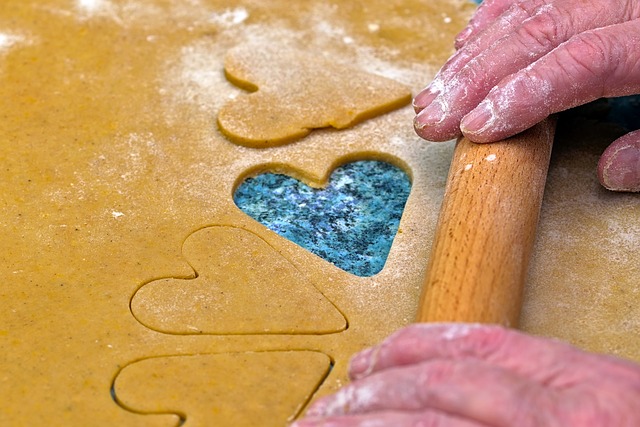Cold water therapy, like cold plunges and immersing in icy water, offers multiple benefits for hormonal balance. It reduces stress hormones (cortisol), stimulates endorphin release, and enhances thyroid function, contributing to overall endocrine health. Regular cold exposure can manage stress, boost mood, support metabolism regulation, and promote mental clarity through hormone stabilization. Incorporate brief cold plunges or showers post-workouts or stressful events for optimal hormonal balance and stress reduction.
“Uncover the transformative power of cold water therapy in achieving mental clarity and stabilizing your mood. This ancient practice, increasingly backed by modern science, involves immersing oneself in frigid temperatures to stimulate profound physiological changes. In this comprehensive guide, we explore how cold plunges can act as a game-changer for hormonal balance, reducing stress hormones and promoting optimal endocrine health. From understanding the science behind it to practical tips for incorporation, discover the benefits of this accessible, at-home therapy.”
Understanding Cold Water Therapy and Its Impact on Hormones
Cold water therapy, often involving a cold plunge or immersion in icy water, has gained attention for its potential to improve mental clarity and stabilize moods. This therapeutic practice isn’t just about the refreshing chill; it triggers a profound response within our bodies, particularly our hormonal systems. When you expose yourself to cold water, whether through a quick shower or an extended cold plunge, your body initiates a series of physiological changes.
One of the key benefits is its effect on stress hormones like cortisol. Cold therapy can significantly reduce these levels, promoting a sense of calm and improving emotional well-being. Additionally, it stimulates the release of endorphins, our natural ‘feel-good’ chemicals, which can boost mood and create a state of relaxation. Moreover, cold water immersion is known to enhance thyroid function, helping to regulate metabolism and supporting overall endocrine health through hormonal balance.
The Science Behind Cold Plunges and Stress Hormone Reduction
The science behind cold plunges and their impact on hormones is an intriguing area of study within the realm of alternative wellness practices. When one immerses themselves in cold water, such as through a cold plunge or ice bath, it triggers a cascade of physiological responses. This temporary stressor prompts the body to release various hormones, including adrenaline and noradrenaline, which are part of the fight-or-flight response. However, what’s fascinating is that prolonged exposure also leads to the reduction of stress hormones like cortisol.
Cold water therapy has been shown to stimulate the vagus nerve, a key component of the parasympathetic nervous system responsible for rest and digestion. This activation helps in regulating the endocrine system by influencing hormone production and release, particularly those related to stress and relaxation. Regular cold plunges can contribute to achieving hormonal balance, making it a promising natural method for managing stress and promoting overall endocrine health.
Benefits of Regular Cold Water Immersion for Endocrine Health
Regular cold water immersion, such as a cold plunge or shower, has been shown to offer significant benefits for endocrine health. Cold therapy stimulates the release of hormones like norepinephrine and cortisol, which can help regulate stress responses and promote a sense of calm. By exposing your body to cold water, you can also boost the production of endorphins, often referred to as “feel-good” hormones, which can enhance mood and reduce feelings of anxiety and depression.
This practice further supports hormone regulation by influencing the thyroid gland’s function. Cold water therapy has been linked to an increase in T3 and T4 hormone levels, crucial for metabolic processes and energy production. Moreover, reducing inflammation through cold exposure can contribute to overall endocrine health by minimizing disruptions in hormonal balance, which is often associated with chronic stress and inflammatory conditions.
Practical Tips for Incorporating Cold Therapy into Your Routine
Incorporating cold therapy into your daily routine can be a game-changer for achieving mental clarity and stabilizing your mood, especially in promoting hormonal balance. Start with a simple cold plunge – immersing yourself in icy water for a brief period – to stimulate your body’s natural stress response and trigger a subsequent relaxation reaction. This practice is particularly beneficial for reducing levels of cortisol, often referred to as the ‘stress hormone’.
For optimal results, aim for regular cold water immersion sessions, preferably after intense workouts or stressful events. You can take it up a notch by incorporating ice baths or cold showers, which have been shown to boost endocrine health and hormone regulation. These practices may seem daunting at first, but even a few minutes of exposure can make a significant difference. Remember, consistency is key; as with any wellness routine, making this a regular habit will unlock the full benefits of cold therapy for your mental and hormonal wellbeing.
Cold water therapy, particularly cold plunges, emerges as a powerful tool for achieving mental clarity and stabilizing mood while promoting hormonal balance. By reducing stress hormones and enhancing endocrine health, regular cold water immersions offer a natural and effective approach to well-being. Incorporating this practice into your routine can be as simple as taking a cold shower or plunge, providing an accessible way to harness the benefits of cold therapy for improved mental and physical health.
